
Exposé Online
What's old
Exposé print issues (1993-2011)
- 1 (October 1993)
- 2 (February 1994)
- 3 (May 1994)
- 4 (August 1994)
- 5 (October 1994)
- 6 (March 1995)
- 7 (July 1995)
- 8 (November 1995)
- 9 (March 1996)
- 10 (August 1996)
- 11 (February 1997)
- 12 (May 1997)
- 13 (October 1997)
- 14 (February 1998)
- 15 (July 1998)
- 16 (January 1999)
- 17 (April 1999)
- 18 (November 1999)
- 19 (May 2000)
- 20 (October 2000)
- 21 (March 2001)
- 22 (July 2001)
- 23 (December 2001)
- 24 (April 2002)
- 25 (September 2002)
- 26 (February 2003)
- 27 (August 2003)
- 28 (December 2003)
- 29 (April 2004)
- 30 (September 2004)
- 31 (March 2005)
- 32 (September 2005)
- 33 (May 2006)
- 34 (March 2007)
- 35 (January 2008)
- 36 (October 2008)
- 37 (July 2009)
- 38 (July 2010)
- 39 (Summer 2011)
Features
The Yaogun Diaries, Part 2 —
P.K. 14
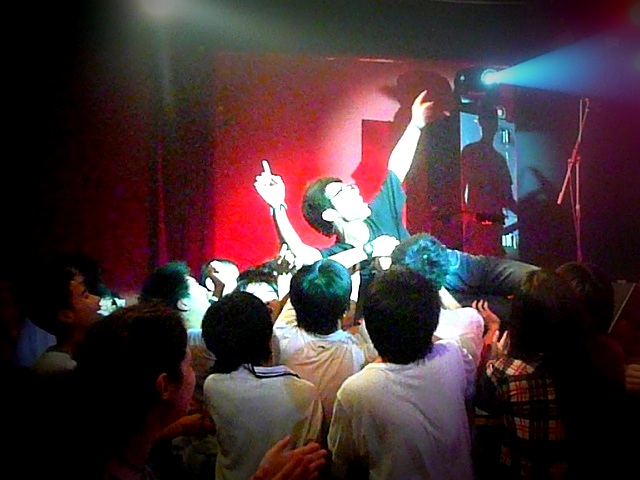
Like Re-TROS in my last installment, this band has its roots in Nanjing. They have continually played with their name, claiming it stands for various different things at different times. They have also been listed in "official" source sometimes as P.K.14, sometimes as The P.K. 14 (The Chinese language has no articles, so this is pretty common with band names). Plain old P.K. 14 seems to be the most common, so I'll go with that.
by Jon Davis, Published 2013-11-30
photography by Jon Davis
Note: This piece was originally published on my Rocket to China blog back in 2009. Since that site is more or less defunct, I've updated the post and brought it to Exposé to make it more accessible.
Part of a series dealing with rock music in China, mostly Beijing because that's what I know. 摇滚 (yáogǔn) is the Chinese word for rock music, the two characters literally meaning "shake" and "roll".
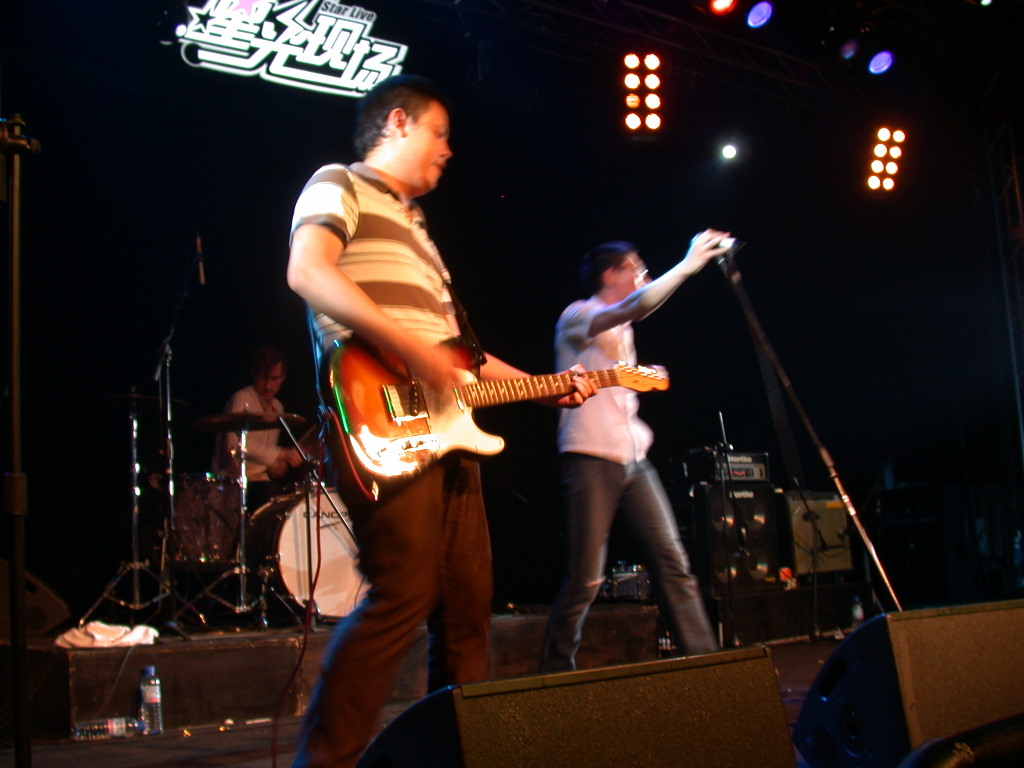 Way back in the spring of 2007, the P.K.14 was one of the first Chinese bands I saw play live (read about it here). They opened for the Soundtrack of Our Lives at Star Live. At that time, their third album 白皮书 (Báipíshū – White Paper), while more than a year old, was still getting positive reviews in the Chinese English-language press, so I went to their MySpace page and checked out the music. For some reason it didn’t really grab me, though I didn’t dislike it.
Way back in the spring of 2007, the P.K.14 was one of the first Chinese bands I saw play live (read about it here). They opened for the Soundtrack of Our Lives at Star Live. At that time, their third album 白皮书 (Báipíshū – White Paper), while more than a year old, was still getting positive reviews in the Chinese English-language press, so I went to their MySpace page and checked out the music. For some reason it didn’t really grab me, though I didn’t dislike it.
The two most notable things about their sound were the lead vocals of Yang Haisong (杨海崧), which are not terribly melodic, mixing yelping, yelling, and overwrought semi-spoken Chinese, and the guitar of Xu Bo (许波) , which generally stays away from rhythmic playing like you expect in punkish rock, kind of like the Edge in a less anthemic setting than U2.
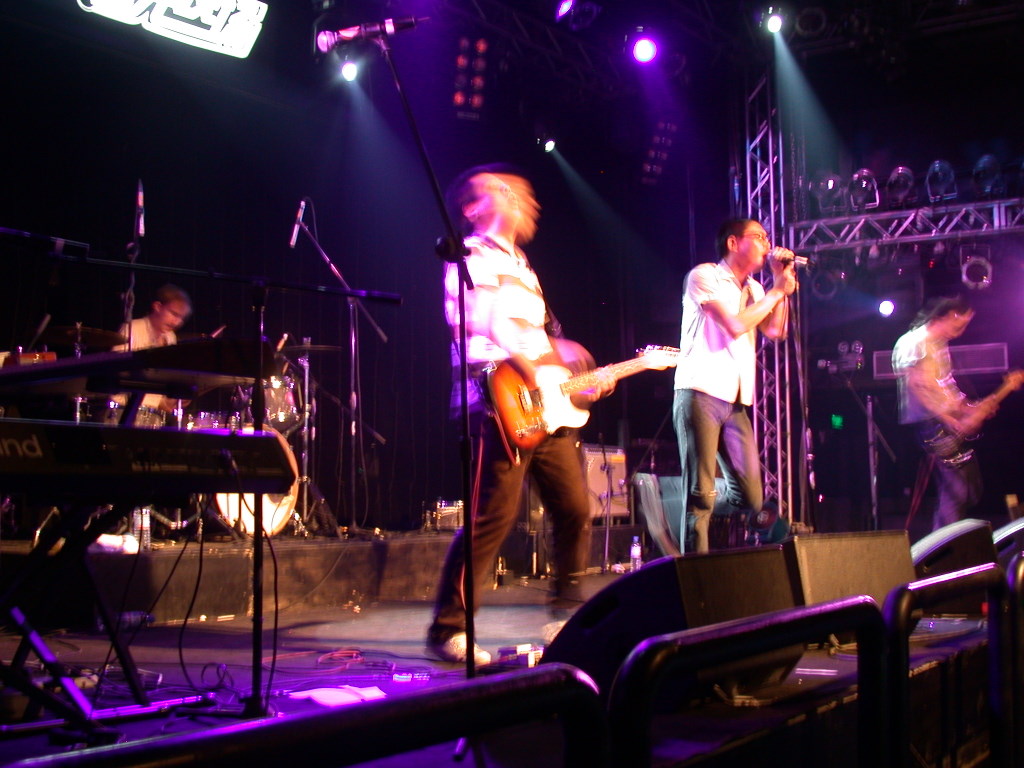 This leaves the bass and guitar to push the rhythms. They also have a tendency to wander off into moody grooves with atmospheric guitar (which U2 also did in their early days). Other good comparisons include Television and Joy Division. The kind of gloomy rock exemplified by Joy Division and Bauhaus seems to be a common influence among Chinese rock musicians, though as far as I know, the Chinese general public is no more familiar with them than a random American who isn't into non-mainstream music.
This leaves the bass and guitar to push the rhythms. They also have a tendency to wander off into moody grooves with atmospheric guitar (which U2 also did in their early days). Other good comparisons include Television and Joy Division. The kind of gloomy rock exemplified by Joy Division and Bauhaus seems to be a common influence among Chinese rock musicians, though as far as I know, the Chinese general public is no more familiar with them than a random American who isn't into non-mainstream music.
I think it was probably the vocals that prevented me from enjoying this band right off the bat. It wasn’t until I had much more experience listening to Chinese rock that I came to appreciate them. Of course, some people just don't like listening to lyrics they can't understand, and for them, Yang's yelping will never work, but for anyone who can deal with David Byrne or any number of other unconventional singers, P.K. 14 might have a chance.
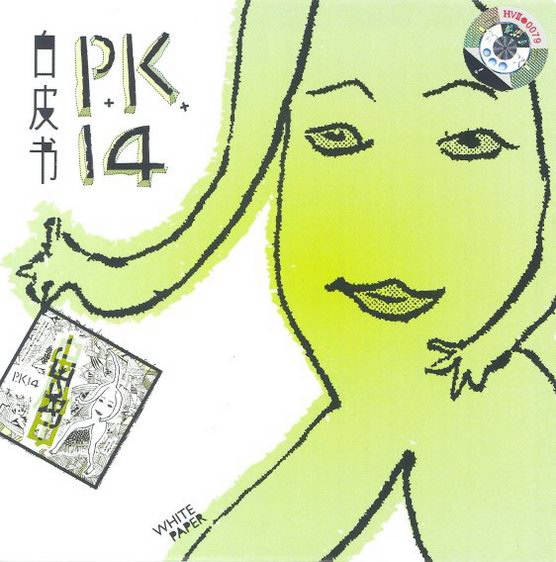 A few months after seeing them live, I reread some of the CD reviews and decided to give it another go. I bought the album and listened to it a few times, gradually coming to the realization that it really was quite good. It’s on the Badhead division of Modern Sky, China’s premier independent rock label. As an aside, on the CD spine, the band’s name is given as Pent Kilowatt One More Than Thirteen. On the opposite spine, they have the Chinese name 青春公共王国 (qīngchūn gōnggòng wángguó), which means Public Kingdom for Teens – get it? P.K. 14. As you can see, the front cover just says P.K. 14.
A few months after seeing them live, I reread some of the CD reviews and decided to give it another go. I bought the album and listened to it a few times, gradually coming to the realization that it really was quite good. It’s on the Badhead division of Modern Sky, China’s premier independent rock label. As an aside, on the CD spine, the band’s name is given as Pent Kilowatt One More Than Thirteen. On the opposite spine, they have the Chinese name 青春公共王国 (qīngchūn gōnggòng wángguó), which means Public Kingdom for Teens – get it? P.K. 14. As you can see, the front cover just says P.K. 14.
The album has worn well for me, and I still like listening to it a lot. They even made a video for one of the tracks. As you can hear on this song, 他们 (Tāmen – “They”), the band is not averse to including embellishments to their guitar-bass-drums core. Other tracks include glockenspiel and synthesizer.
The credits are all in Chinese, but according to the Rock in China bio, the album was recorded in Sweden with producer Hernik Oja. The band’s long-time (though not original) drummer is of Swedish ancestry, though he’s lived most of his life in China and Hong Kong.
Their energy and passion in this track and others are obvious even if you know nothing of the words.
The album finishes with a track called 故事 (Gùshi), which means “Story” or “Saga.” I love the way the guitar is at times pounding out the eighth notes and then breaks off to soar melodically, and the climax of the tune, is positively cathartic.
 In June of 2008, just before the Olympics, the band released their fourth album, 城市天气的航行 (chéngshì tiānqì de hángxíng), which translates rather cryptically as City Weather Sailing. It’s on the Maybe Mars label, which has been putting out a lot of good stuff lately. By the time it came out, I was fond enough of the band to buy it without hearing any of the music first. I'd read that they would be sounding more ambitious, and I had the feeling they would be able to pull it off.
In June of 2008, just before the Olympics, the band released their fourth album, 城市天气的航行 (chéngshì tiānqì de hángxíng), which translates rather cryptically as City Weather Sailing. It’s on the Maybe Mars label, which has been putting out a lot of good stuff lately. By the time it came out, I was fond enough of the band to buy it without hearing any of the music first. I'd read that they would be sounding more ambitious, and I had the feeling they would be able to pull it off.
The artwork is just as cryptic as the title. On most websites (including ours), the cover is shown as a rather strange photo of performance art or modern dance. This is actually the back cover of the package. On the front is a blurry cityscape and no writing whatsoever. But I think the back cover is more striking — the kind of image that causes a viewer to pause and examine more closely to figure out what it is.
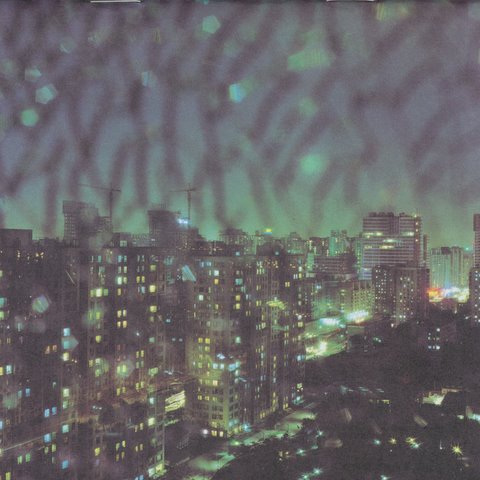 As soon as I pressed Play on the first of its 18 tracks, I knew I was in for something special. The sparse keyboard touches of the previous album have been enhanced to the point of having their own voice, though still without overpowering the post-punk core of the band.
As soon as I pressed Play on the first of its 18 tracks, I knew I was in for something special. The sparse keyboard touches of the previous album have been enhanced to the point of having their own voice, though still without overpowering the post-punk core of the band.
A moody piano, a tentative voice, and some subtle electronic touches greet the listener on track one, with the guitar sneaking in later, before a heavily processed percussion part slips in with an erratic rhythm, along the lines of Radiohead near their most abstract, though the completely different vocal sound derails the comparison before it gets too far. This is music that is both sophisticated and visceral. Six of the tracks are interludes under a minute long, brief improvisations that set up the mood without seeming indulgent or unnecessary.
The video they made for this album features the song 每一种分离背后的疼痛 (Měi yī zhǒng fēnlí bèihòu de téngtòng), translated officially as "Behind All Ruptures."
Other tracks feature nicely arranged strings, and even a Mellotron, I'd swear, though they are clearly still a rock band and can really drive home a tune when they want to – in short, this is a band with talent and vision to spare. City Weather Sailing is easily in my top ten Chinese albums of all time.
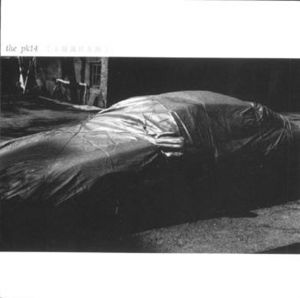 Now that I’ve covered their third and fourth albums, what about the earlier ones? Rock in China lists a 2001 CD called 上楼就往左拐 (shànglóu jiù wǎng zuǒguǎi – Upstairs on the Left), released on Subjam in China and Empty Egg, a Canadian label, but I have never seen this available for purchase or download anywhere. I consider it a mythical beast which maybe once roamed the surface of the Earth, but has now either gone extinct or retreated so far into uninhabited territory that contact is unlikely.
Now that I’ve covered their third and fourth albums, what about the earlier ones? Rock in China lists a 2001 CD called 上楼就往左拐 (shànglóu jiù wǎng zuǒguǎi – Upstairs on the Left), released on Subjam in China and Empty Egg, a Canadian label, but I have never seen this available for purchase or download anywhere. I consider it a mythical beast which maybe once roamed the surface of the Earth, but has now either gone extinct or retreated so far into uninhabited territory that contact is unlikely.
There is also a demo collection called 烂掉吧 (làndiào ba – Rotting, or maybe Rotten or even Rot It or Let It Rot – I'm open to suggestions) which is available for download (with the exception of track 5 for some reason) from here along with RealMedia of some other demos. All of the tracks listed for the UpstairsCD also appear on the demo collection – I don’t know if the Subjam/Empty Egg release featured exactly the same recordings or new versions of the same songs.
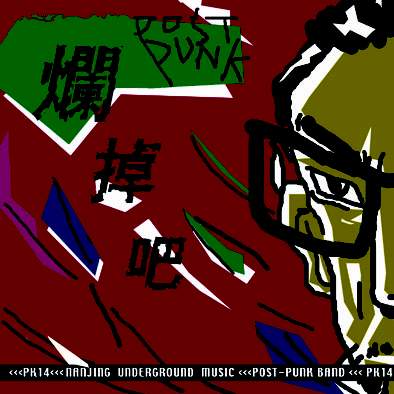 Aside from the demo’s production quality, which is not so bad, the music, while it does contain the seeds of the band’s style, is less interesting. There are no credits to go on, but it sounds like they’re using a drum machine. The mood is more subdued, completely lacking the intense energy shown on later recordings. All in all, it reminds me much more of Joy Division than their later material. Incidentally, the file I downloaded for track 6 seems to consist of 5:35 of silence.
Aside from the demo’s production quality, which is not so bad, the music, while it does contain the seeds of the band’s style, is less interesting. There are no credits to go on, but it sounds like they’re using a drum machine. The mood is more subdued, completely lacking the intense energy shown on later recordings. All in all, it reminds me much more of Joy Division than their later material. Incidentally, the file I downloaded for track 6 seems to consist of 5:35 of silence.
“Invested in the Break of an Embrace”
Check out 投向分裂的怀抱 (tóu xiàng fēnliè de huáibào), which might or might not translate as “Invested in the Break of an Embrace.” It’s one of a few of the demo tracks that really give the sense of what the band would later grow into.
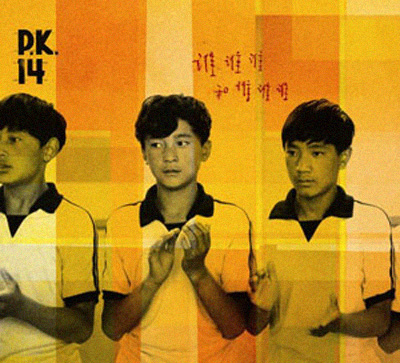 Their second album came out in 2004, and it is where the band came into their own stylistically. The improved production and drumming really fill out the sound, and we’re starting to see touches of the sophistication. The album is called 谁谁谁和谁谁谁 (shéishéishéi hé shéishéishéi – Who Who Who and Who Who Who, which is maybe some kind of expression I’m not familiar with). The song I’ve chosen for you to sample is 第二十八个影子 (dì'èrshíbāgè yǐngzi – “The 28th Shadow”).
Their second album came out in 2004, and it is where the band came into their own stylistically. The improved production and drumming really fill out the sound, and we’re starting to see touches of the sophistication. The album is called 谁谁谁和谁谁谁 (shéishéishéi hé shéishéishéi – Who Who Who and Who Who Who, which is maybe some kind of expression I’m not familiar with). The song I’ve chosen for you to sample is 第二十八个影子 (dì'èrshíbāgè yǐngzi – “The 28th Shadow”).
That's a live performance from 2008.
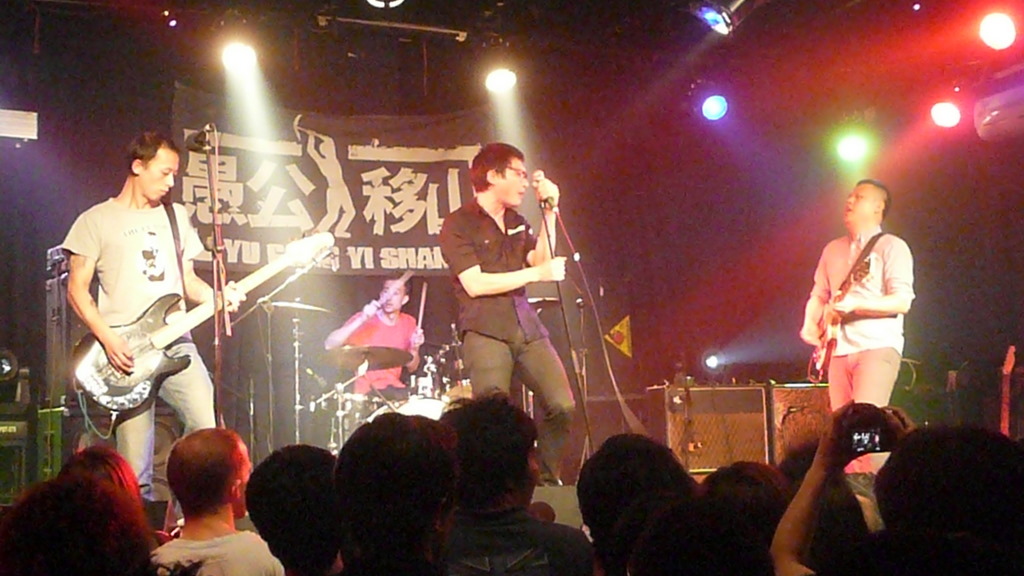 Just a few days before I left China, I got the chance to see P.K. 14 live again. This time the show was at Yugong Yishan. They had the middle spot on a bill with Offset: Spectacles before them and the American band These Are Powers after. Offset: Spectacles are an odd band from Hong Kong, a trio with a bass player, a guitarist, and a guy who sometimes plays a distorted combo organ, sometimes a violin, and sometimes guitar. No drums, so the guitars set up rhythms to keeps things moving along. They're noisy and completely noncommercial – in other words, a perfect fir for the Beijing scene.
Just a few days before I left China, I got the chance to see P.K. 14 live again. This time the show was at Yugong Yishan. They had the middle spot on a bill with Offset: Spectacles before them and the American band These Are Powers after. Offset: Spectacles are an odd band from Hong Kong, a trio with a bass player, a guitarist, and a guy who sometimes plays a distorted combo organ, sometimes a violin, and sometimes guitar. No drums, so the guitars set up rhythms to keeps things moving along. They're noisy and completely noncommercial – in other words, a perfect fir for the Beijing scene.
One thing’s for sure: P.K. 14 was a lot louder this time then when I first saw them.
 In fact, it was one of those shows where the music was so loud that any nuances were completely overwhelmed by volume, quite at odds with the sophisticated sound of their then-current album, City Weather Sailing. But I had my earplugs with me, so permanent damage was averted. I just couldn't tell the songs apart, even being familiar with the albums. I'm enough of an addict that I stuck it out to the end, but it wasn't an especially enjoyable experience.
In fact, it was one of those shows where the music was so loud that any nuances were completely overwhelmed by volume, quite at odds with the sophisticated sound of their then-current album, City Weather Sailing. But I had my earplugs with me, so permanent damage was averted. I just couldn't tell the songs apart, even being familiar with the albums. I'm enough of an addict that I stuck it out to the end, but it wasn't an especially enjoyable experience.
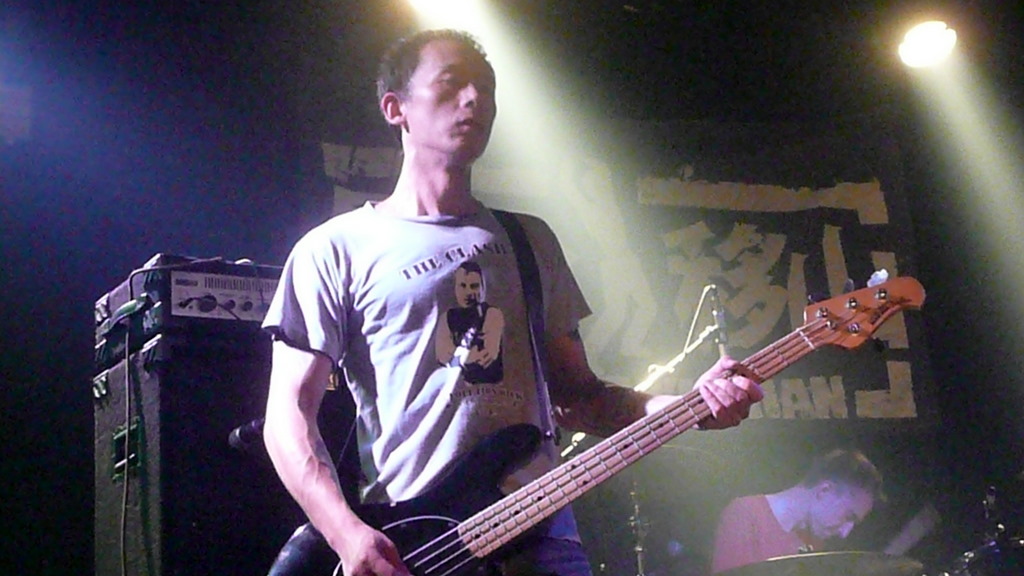 Yugong Yishan has an excellent sound system, and most of the time even loud bands sound good, but this one was way over the top. Even Carsick Cars were not so distorted. But the show was well attended, which might have been due to the presence of an American band on the bill, even though These Are Powers is hardly a well-known act. I'd never heard of them before, and not since. They were interesting, kind of arty electronic pop.
Yugong Yishan has an excellent sound system, and most of the time even loud bands sound good, but this one was way over the top. Even Carsick Cars were not so distorted. But the show was well attended, which might have been due to the presence of an American band on the bill, even though These Are Powers is hardly a well-known act. I'd never heard of them before, and not since. They were interesting, kind of arty electronic pop.
But back to P.K. 14...
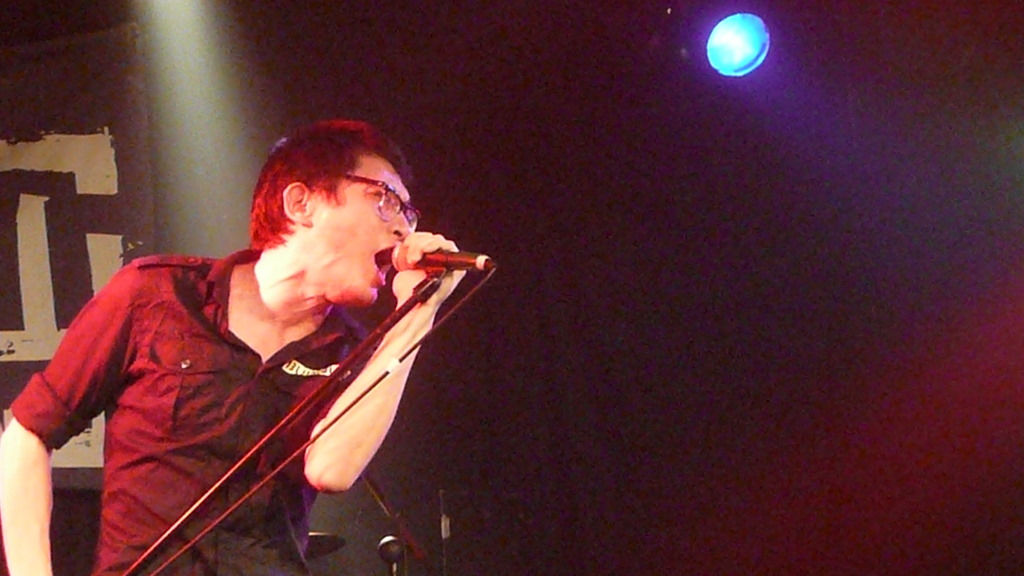 Still, they really had the crowd going. It always amazed me how many people would show up for rock shows in Beijing, given that no one I knew there could so much as name a local rock band, let alone be familiar with their music. But Beijing is a really large city, somewhere over 15 million people, so it doesn't take a very large fraction of them to make a sizable crowd like the couple hundred it takes to fill Yugong Yishan.
Still, they really had the crowd going. It always amazed me how many people would show up for rock shows in Beijing, given that no one I knew there could so much as name a local rock band, let alone be familiar with their music. But Beijing is a really large city, somewhere over 15 million people, so it doesn't take a very large fraction of them to make a sizable crowd like the couple hundred it takes to fill Yugong Yishan.
 And a little crowd surfing never hurts, as can be seen in the picture at the top of this article.
And a little crowd surfing never hurts, as can be seen in the picture at the top of this article.
In spite of the less-than-ideal circumstances of this show, it was clear that this band is truly original, no longer copying any of the Western acts they started out emulating.
As of this writing in 2013, their newest album, 1984, has just been released. I've got it sitting in my review stack, looking forward to giving it some serious attention.
In the meantime, here's a video of one of the new tunes:
Filed under: Profiles
Related artist(s): P.K.14
More info
http://tenzenmen.com/artists/p-k-14
What's new
These are the most recent changes made to artists, releases, and articles.
- Release: Thierry Zaboitzeff - Artefacts
Updated 2026-02-27 00:16:46 - Review: Kevin Kastning - Codex I & Codex II
Published 2026-02-27 - Release: Zan Zone - The Rock Is Still Rollin'
Updated 2026-02-26 23:26:09 - Release: The Leemoo Gang - A Family Business
Updated 2026-02-26 23:07:29 - Release: Ciolkowska - Bomba Nastoyashchego
Updated 2026-02-26 13:08:55 - Review: Immensity Crumb - Chamber Music for Sleeping Giants
Published 2026-02-26 - Release: The Gatekeepers - Diary of a Teenage Prophet
Updated 2026-02-25 15:55:58 - Review: Mars Lasar - Grand Canyon
Published 2026-02-25 - Listen and discover: Mordecai Smyth will not break your back
Published 2026-02-25 - Release: Tashi Wada - What Is Not Strange?
Updated 2026-02-24 14:56:16 - Artist: Tashi Wada
Updated 2026-02-24 14:54:34 - Release: Greg Segal - Maintain!
Updated 2026-02-24 00:38:03 - Review: Il Segno del Comando - Sublimazione - Live
Published 2026-02-24 - Review: Nektar - Mission to Mars & Fortyfied
Published 2026-02-23 - Review: Jaime Rosas - Tres Piezas de Rock Progresivo
Published 2026-02-22 - Release: Kevin Kastning & Bruno Råberg - Across Tall Rain
Updated 2026-02-21 00:42:08 - Review: Gary Husband - Postcards from the Past
Published 2026-02-21 - Release: Daniel Crommie - Februa
Updated 2026-02-20 14:23:17
